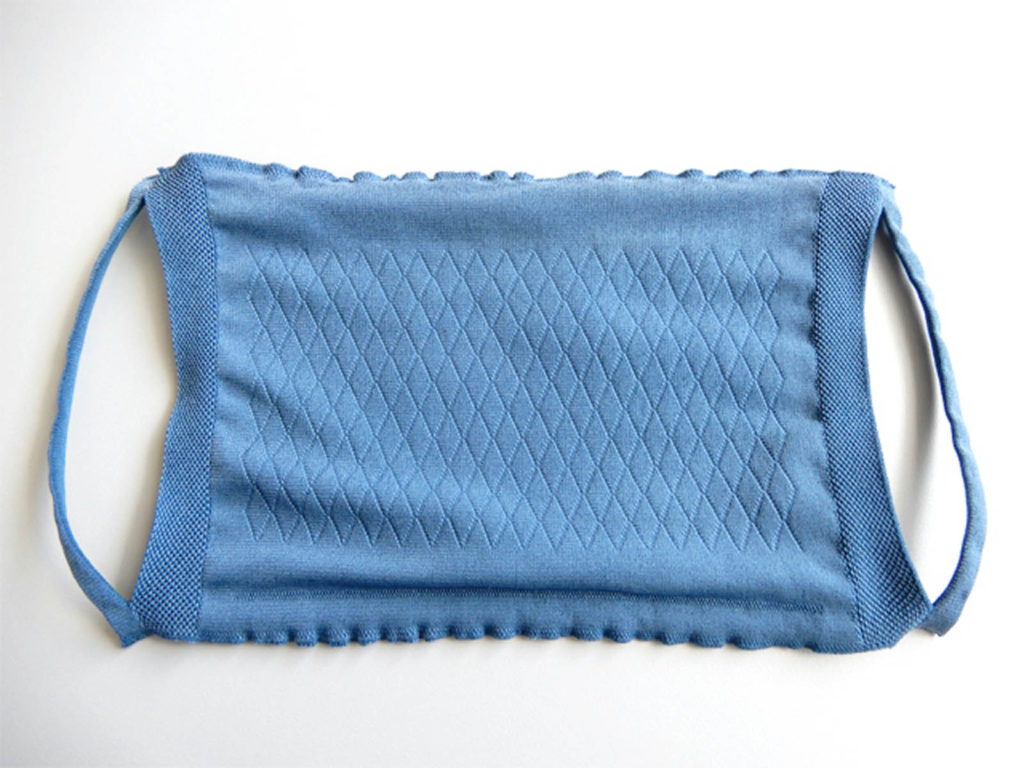Textile product manufacturers step up to produce personal protective equipment.
by Dara Syrkin
In 1910, a doctor named Lien-teh Wu was called on to help combat a plague sweeping through northern China. He determined that the disease was not caused by fleas but was contracted through the air. A recent Fast Company article recounts this scientist’s work that changed medical professionals’ and the general public’s understanding of the spread of disease.
Lien-teh Wu developed a wrap-around mask that secured to the wearer’s face. It was made of layers of cotton and gauze, to help filter inhalations. The design incorporated relatively cheap and readily available materials and mask production ramped up dramatically in 1911. By the time the 1918 flu pandemic was underway, masks were well known among scientists and much of the public.

Textile companies today are responding to the COVID-19 pandemic and the need for masks and other personal protective equipment (PPE) to help thwart the spread of disease. Some companies are redirecting their expertise. Others are reconfiguring processes and spaces. Some are sharing resources with colleagues and teaming up with nonprofits. Many also see their response as a way to be good global partners.
Reconfiguring to produce PPE
Technology, healthcare and textile company, Myant, says that it has reconfigured 80,000 square feet of manufacturing facility with the goal of making a million masks per month. The knitting machines in the Canadian facility work nonstop to produce washable textile face masks designed for frontline workers as well as people making essential trips in their neighborhoods. Myant sees the increased production as a response to communities around the globe establishing “a new type of normal life.”
ZF North America is restructuring its cut-and-sew expertise for seat belt and airbag systems to create masks and gowns. The masks were developed to meet CDC guidelines to help protect frontline health care workers and individuals in the community at high risk for infection, such as staff at soup kitchens, nursing homes and other essential organizations. The company expects to deliver 100,000 masks to its partner, Detroit Sewn, by the end of April 2020.
Detroit Sewn has been a full-service cut-and-sew manufacturer but recently restructured its operations to focus solely on the production of masks and gowns. Detroit Sewn is supplying fabric to ZF North America as well as other manufacturers.
Karl Mayer, a warp knitting machine manufacturer, says that its tricot machines with two guide bars for elastic fabrics can be converted to the production of tapes for masks. The company estimates enough tapes could be produced for up to 15 million masks per month and that European machines could be put to work to augment Asian production. It is also developing protective masks, as well as instructions for their high-speed production. The company says the masks developed at Karl Mayer are manufactured in one piece, without the need of sewing.
Shared resources to protect people
Manufacturers are collaborating with each other and with nonprofits to help meet the protection needs throughout communities. Detroit Sewn Inc. is partnering with the Glamorous Moms Foundation to create the Michigan Mask Donation Center in Pontiac, Mich., which distributes home-sewn masks. (Textile companies point out that fabric masks are a crisis response option when other supplies have been exhausted. Fabric masks are not intended to replace N95 masks.)
Some manufacturers have needs of their own, namely labor. Monterey Mills introduced a washable, reusable face mask on March 23, 2020, but the company is having difficulty keeping up with demand. Monterey Mills is searching for cut-and-sew partners that have the capacity to produce at least 10,000 units a day.
Sharing knowledge is critical when needs are critical. To that end, sewn products industry organization SEAMS announced its pattern hub. Many patterns required to produce PPE—from home creations to approved medical products—can be accessed at seams.org/ppe-patterns.
Continued evolution of masks
Researchers and manufacturers will continue to develop and make masks and other PPE to address ongoing needs around the globe. As more is known about this new virus, the textile is responding with improved products to help in the fight against COVID-19.
New mask designs
Some textile manufacturers are adding properties to reusable non-surgical masks. Three North Carolina companies, Nufabrx, CuTEC Copper and Bossong Medical, are collaborating to create TheraMask reusable masks and gloves that are made from 82 percent CuTEC Copper fibers, reported to provide antimicrobial benefits. The TheraMask website says that for every order received, one mask is donated to a first responder, health care or essential service hero.
Dara Syrkin is a freelance writer and editor based in St. Paul, MN.
Editor’s note: This is, of course, a small representation of the many companies that have risen to the challenge facing us worldwide. Visit this site and specialtyfabricsreview.com for additional articles in the coming weeks and months about the efforts of other businesses and organizations.
 TEXTILES.ORG
TEXTILES.ORG


